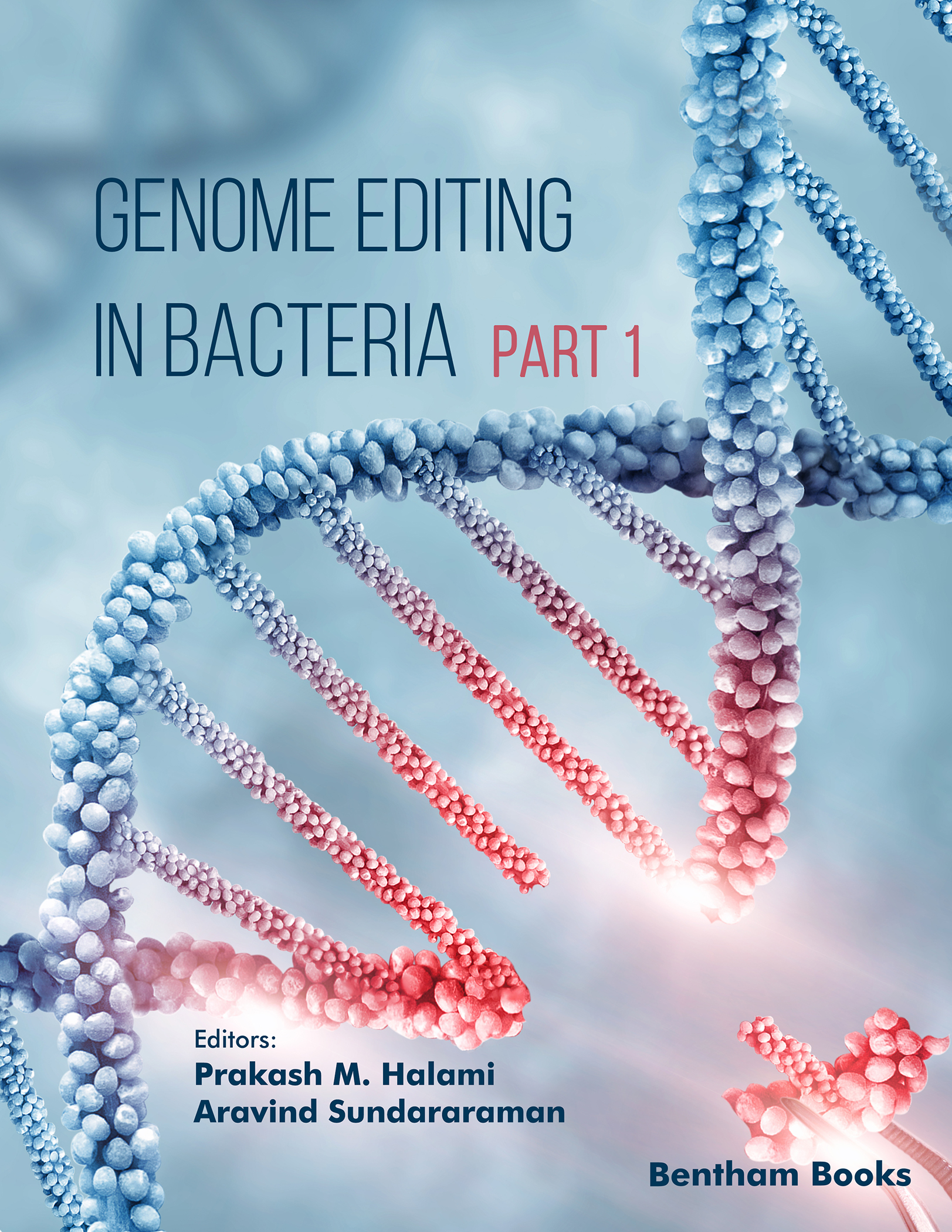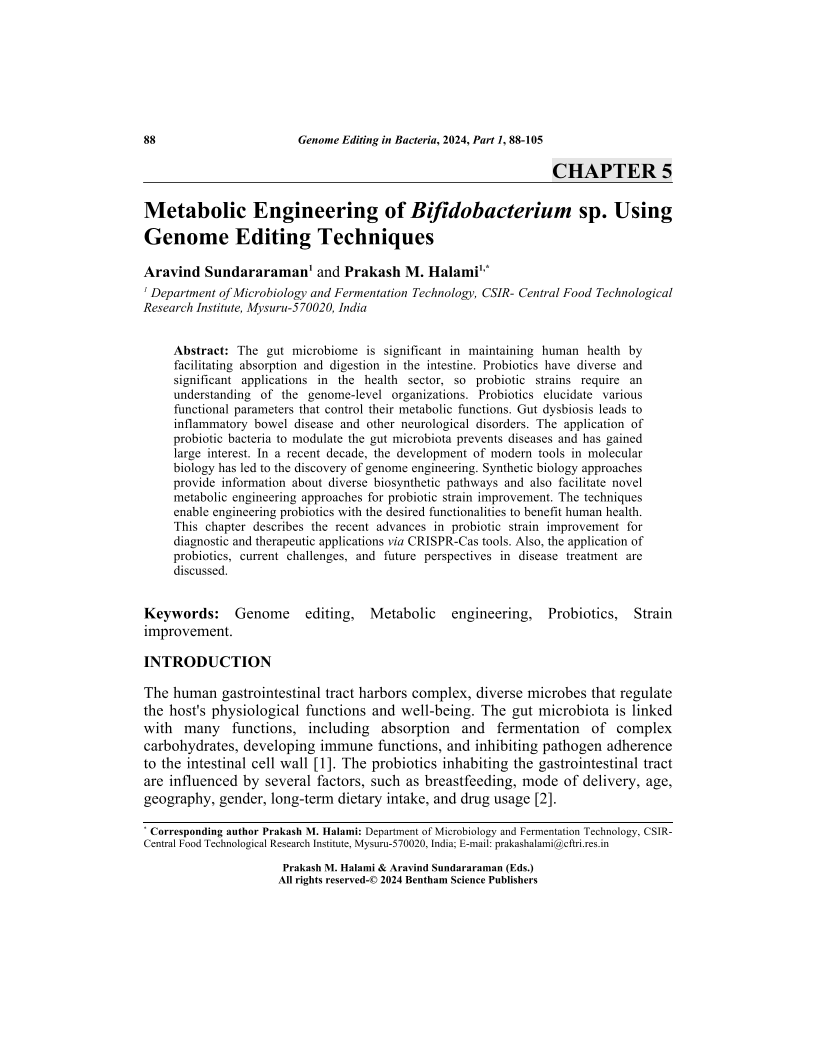Metabolic Engineering of Bifidobacterium sp. Using Genome Editing Techniques

- Authors: Aravind Sundararaman1, Prakash M. Halami2
-
View Affiliations Hide Affiliations1 Department of Microbiology and Fermentation Technology, CSIR Central Food Technological Research Institute, Mysuru-570020, India 2 Department of Microbiology and Fermentation Technology, CSIR- Central Food Technological Research Institute, Mysuru-570020, India
- Source: Genome Editing in Bacteria (Part 1) , pp 88-105
- Publication Date: February 2024
- Language: English
Metabolic Engineering of Bifidobacterium sp. Using Genome Editing Techniques, Page 1 of 1
< Previous page | Next page > /docserver/preview/fulltext/9789815165678/chapter-5-1.gif
The gut microbiome is significant in maintaining human health by facilitating absorption and digestion in the intestine. Probiotics have diverse and significant applications in the health sector, so probiotic strains require an understanding of the genome-level organizations. Probiotics elucidate various functional parameters that control their metabolic functions. Gut dysbiosis leads to inflammatory bowel disease and other neurological disorders. The application of probiotic bacteria to modulate the gut microbiota prevents diseases and has gained large interest. In a recent decade, the development of modern tools in molecular biology has led to the discovery of genome engineering. Synthetic biology approaches provide information about diverse biosynthetic pathways and also facilitate novel metabolic engineering approaches for probiotic strain improvement. The techniques enable engineering probiotics with the desired functionalities to benefit human health. This chapter describes the recent advances in probiotic strain improvement for diagnostic and therapeutic applications via CRISPR-Cas tools. Also, the application of probiotics, current challenges, and future perspectives in disease treatment are discussed.
-
From This Site
/content/books/9789815165678.chapter-5dcterms_subject,pub_keyword-contentType:Journal -contentType:Figure -contentType:Table -contentType:SupplementaryData105

